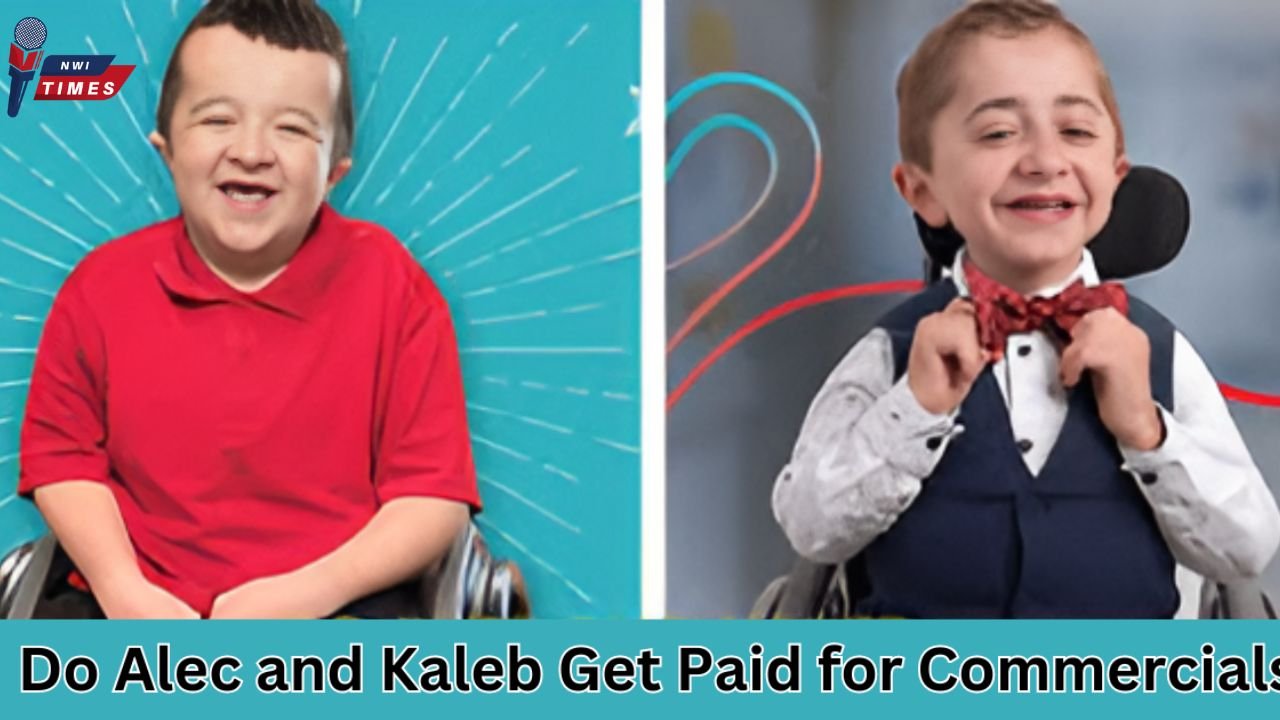Alec and Kaleb have gained recognition for their appearances in various commercials, especially those for Shriners Hospitals for Children. Their charming personalities and heartwarming stories have led many to ask, “Do Alec and Kaleb get paid for commercials?” This article aims to explore the answer to this question, using simple language that even a 5th grader can understand.
Who Are Alec and Kaleb?
Alec and Kaleb are two boys featured in commercials for Shriners Hospitals for Children. They share their personal experiences of receiving treatment at Shriners and how the hospital has helped them with their medical challenges. These commercials have raised awareness about the hospital’s services and inspired people to donate. Many viewers wonder, “Do Alec and Kaleb get paid for commercials?” or are they just volunteering their time to help the hospital?
Do Alec and Kaleb Get Paid for Their Commercials?
The main question remains: Do Alec and Kaleb get paid for commercials? While the exact details of their compensation are not publicly available, there are some key points to consider. Since Alec and Kaleb are patients of Shriners Hospitals, their involvement in the commercials is likely connected to the hospital’s mission. It is common for individuals who benefit from charitable organizations to participate in promotional campaigns without monetary payment. Alec and Kaleb’s involvement may not follow the same payment structure as other actors who appear in commercials.
How Are Actors Usually Paid for Commercials?
When asking, “Do Alec and Kaleb get paid for commercials,” it helps to understand how actors in commercials are usually compensated. In general, actors, including child actors, can earn anywhere from $500 to $5,000 for a commercial, depending on factors like screen time, the platform on which the commercial airs, and the contract terms. Alec and Kaleb, however, may be participating in the commercials more as a way of giving back to Shriners Hospitals rather than as paid actors.
What Is the Purpose of These Commercials?
Shriners Hospitals for Children is a non-profit organization that provides specialized medical care to children, often at no cost to the families. The commercials featuring Alec and Kaleb aim to raise awareness and encourage donations to help the hospital continue its mission. The question “Do Alec and Kaleb get paid for commercials” often comes up because they are the faces of these campaigns. While monetary compensation might not be involved, Alec and Kaleb are playing a crucial role in helping the hospital raise funds.
Do Alec and Kaleb Have Any Other Income?
While Alec and Kaleb are mainly known for their appearances in Shriners Hospitals commercials, there is no public information about whether they have other income sources or paid roles outside of these ads. People continue to ask, “Do Alec and Kaleb get paid for commercials?” because they are such prominent figures in these campaigns. Still, their focus appears to be on supporting Shriners Hospitals and helping other children receive the care they need.
Why Do Alec and Kaleb Participate in These Commercials?
The next question after “Do Alec and Kaleb get paid for commercials” is why they participate in them. Alec and Kaleb have benefited from the services provided by Shriners Hospitals. By sharing their stories in the commercials, they are helping to inspire people to donate to the hospital. Their participation is often seen as a way of giving back to the hospital that has made a positive difference in their lives. Whether or not they are paid, Alec and Kaleb’s contribution is making a significant impact by raising awareness and funds for Shriners Hospitals.
Should Alec and Kaleb Be Paid for Their Work?
Some people may argue that Alec and Kaleb should be compensated for their work, especially given the large audience these commercials reach. When viewers ask, “Do Alec and Kaleb get paid for commercials,” they may be concerned that the boys are giving their time and effort without financial reward. On the other hand, Alec and Kaleb may feel that their involvement in promoting Shriners Hospitals is payment enough, as it allows them to support a cause that has directly helped them.
How Much Money Do the Commercials Raise?
The commercials featuring Alec and Kaleb have been instrumental in raising millions of dollars for Shriners Hospitals for Children. The funds generated by these ads ensure that children who need medical care can receive it, regardless of their family’s financial situation. While the question “Do Alec and Kaleb get paid for commercials” may still be on people’s minds, it’s clear that their involvement has a much larger purpose in supporting a charitable cause.
What Is the Impact of Alec and Kaleb’s Work?
Even if the answer to “Do Alec and Kaleb get paid for commercials” is unclear, their work in raising awareness for Shriners Hospitals has had a lasting impact. The commercials have touched the hearts of many, encouraging people to donate to the hospital. The funds raised have helped provide life-changing medical care to countless children. Alec and Kaleb’s participation has inspired hope and shown how sharing personal stories can make a difference in the lives of others.
Table of Pros and Cons of Alec and Kaleb’s Participation in Commercials:
| Pros | Cons |
| Raises awareness for Shriners | Unclear if Alec and Kaleb are paid |
| Helps generate donations | Lack of transparency about compensation |
| Inspires hope for other children | Time-consuming involvement in commercials |
| Offers a platform to share stories | Could limit other activities |
| Contributes to a charitable cause | Possibility of unfair treatment if unpaid |
Conclusion
To wrap things up, the question “Do Alec and Kaleb get paid for commercials” doesn’t have a straightforward answer. While the details of their compensation remain private, it’s important to remember the larger impact of their work. Whether or not Alec and Kaleb are paid for their appearances, their contributions have helped Shriners Hospitals for Children continue its mission of providing care to children in need. Their stories have inspired donations and raised awareness, ensuring that other children can receive the same high-quality medical care that they have benefited from.



